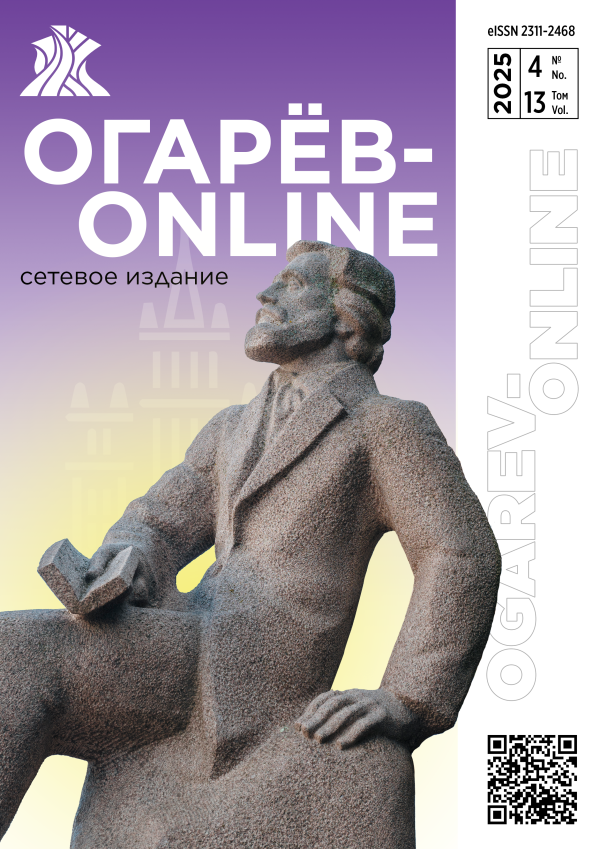Vol 1, No 4 (2013)
- Year: 2013
- Published: 20.02.2013
- Articles: 10
- URL: https://ogarev-online.ru/2311-2468/issue/view/19343
Full Issue
Statics in American political discourse: a study of inaugural addresses of american presidents
Abstract
The paper considers the features of American political discourse and presidential inaugural addresses in particular. The author focuses on the static component that is not liable to changes despite extralinguistic factors of different stages of American history.


Application of computer methods for acoustic analysis of english speech as part of practical research
Abstract
The paper deals with the use of PC phonetic software for instrumental acoustic analysis of recorded speech. The study has been carried out using the computer programme “Speech Analyzer 3.0.1”. An analysis was conducted to explore the relevance and effectiveness of instrumental methods applied for speech analysis, whether used on their own or in combination with auditory-perceptual methods. The paper reviews the main aspects of measurement and quantification of oral speech technically registered features. The relevant data was obtained by means of instrumental analysis as well as perceptual analysis.


Urban dictionary: a crowdsourcing online dictionary in the structure of contemporary communication
Abstract
The paper studies Urban Dictionary (an online dictionary of contemporary slang), its structure and ways of functioning. The author comes to the following conclusion: the crowdsourcing online dictionaries similar to Urban Dictionary are not only public reference websites providing up-to-date information, but also one of the ways of Internet communication and self-expression.


Specifics of youth language in the internet communication
Abstract
In the today’s world the Internet occupies one of leading positions in the life of people. On the Internet we buy, work and communicate. Internet communication is particularly popular among young people. Consequently, a special language of virtual communication has emerged. In this connection the paper considers the ways the Internet influences youth communication in Russia and Germany.




Creation of the structural form of model of anthropogenous pollution of the air pool in the Republic of Mordovia
Abstract
The article is devoted to the problem of anthropogenous pollution of atmospheric air. The general characteristic of anthropogenous air pollution of the Republic of Mordovia is given. Need of creation of system of the simultaneous equations for the description of structural communications of indicators of anthropogenous impact on the air pool is proved. As a result of research the structural form of model of anthropogenous pollution of atmospheric air of the Republic of Mordovia is constructed.


Rhythmic organization of the English poetic text: а synchronic and diachronic study
Abstract
The paper considers the rhythmic organization of the modern English poetic texts compared to the rhythmic poetic norms applied in the previous centuries. The study has been carried out in order to reveal the current state of the English poetry rhythmic organization. Considering the new data, the author indicates the major causes that have determined the alteration of the rhythmic pattern. The analysis is based on 100 English verses belonging to the 16-21 centuries. The study reveals the prevailing meters and the frequency of their use in the modern English poetic texts.


On translation of economic terms (based on English and Russian languages data)
Abstract
The paper deals with the translation of English economic terms using the cognitive linguistics approach. The author emphasizes the importance of defining the type of mass media that includes the economic text, i.e. whether it is a specialized or popular periodical. Considering the target reader appears as a key factor when choosing the correct translation of an English polysemantic economic term.




Verbalization of the Russia Federation’s image through the prism of military terminology
Abstract
The paper studies the Russian Federation’s image formation in terms of mass media. The author gives a clear picture of how Russia is considered abroad with the help of English military terminology and highlights the fact that using special terms can influence the public opinion.

















